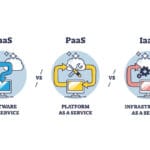We all have aspirations, dreams we yearn to achieve. Yet, for many, the reality falls short. It’s easy to blame external factors, but often, the culprits are ingrained habits that subtly sabotage our progress. Mediocrity isn’t a lack of talent; it’s the accumulation of these seemingly innocent daily choices that silently limit your potential. Let’s shine a light on these seven habits that might be holding you back from a life of fulfillment and achievement.
Prioritizing Urgent Over Important
- The constant barrage of emails, notifications, and last-minute requests can create a false sense of productivity. By constantly reacting to the urgent, you neglect the important tasks that contribute to your long-term goals and overall success.
- Example: Spending the entire day answering emails and attending impromptu meetings might make you feel busy, but it leaves no time for strategic planning, creative thinking, or working on high-impact projects.
- Being busy doesn’t equate to being effective. True progress comes from focusing on tasks that align with your priorities and contribute meaningfully to your objectives.
Avoiding Tough Conversations
- Think about that nagging issue with a colleague or a misunderstanding with a loved one. Avoiding the uncomfortable conversation might offer temporary relief, but the underlying problem festers. It creates distance, resentment, and ultimately hinders progress.
- Example: Imagine a team member consistently underperforming. Avoiding a direct conversation about expectations and performance issues not only frustrates the rest of the team but also prevents the underperforming individual from understanding the need for improvement.
- Choosing the easy path of silence over the challenging path of confrontation might feel safer in the moment, but it ensures that crucial issues remain unresolved, hindering growth and stronger connections in the long run.
Looking for permission or approval
- Continuously seeking approval for every idea or initiative stifles your creativity and limits your ability to take initiative. It positions you as a follower rather than a leader.
- Example: An employee with a great idea for improving a process might hesitate to suggest it until explicitly asked for input, potentially missing an opportunity for positive change.
- Exceptional individuals don’t wait for permission or perfect circumstances. They identify opportunities, take calculated risks, and proactively shape their environment to achieve their goals.
Following traditional path
- If you always do what you’ve always done, you’ll always get what you’ve always got. Settling for the status quo and blindly following the crowd stifles innovation and limits your potential for extraordinary outcomes.
- Example: If you walk on same path everyday, you will reach at same place everyday.
- Exceptional individuals dare to think differently. They challenge norms, question established practices, and aren’t afraid to forge their own path, often leading to groundbreaking achievements.
Avoiding Calculated Risks
- Growth often lies outside your comfort zone. Avoiding any possibility of failure might feel secure, but it also limits your learning, experience, and ultimately, your achievements.
- Example: Staying in a comfortable but unfulfilling job because the security outweighs the fear of the unknown prevents you from exploring potentially more rewarding and impactful career paths.
- While caution has its place, an excessive focus on avoiding mistakes can lead to missed opportunities and a life lived far below your potential. High performers understand that calculated risks are necessary for significant growth and progress.
Making problem external
- When faced with challenges, a mediocre performer will often focus on external factors or personal limitations as reasons for failure. This victim mentality prevents them from taking ownership and seeking solutions.
- Example: Instead of analyzing why a project failed and identifying areas for improvement, someone with a fixed mindset might blame the lack of resources, uncooperative team members, or bad luck.
- They become experts at rationalizing their inaction or shortcomings, creating elaborate narratives that shield them from the discomfort of taking responsibility and making necessary changes.
Consumption bias
- We live in an age of information overload. It’s tempting to constantly read articles, listen to podcasts, and attend webinars. While learning is valuable, it becomes a form of procrastination when it consistently precedes action. You become a collector of information, not a creator of results.
- Example: Someone wanting to start a business might spend months researching market trends, competitor analysis, and business plan templates, but never actually take the leap to register their company or make their first sale.
- Perfection is a myth. Waiting for the “perfect” moment or having all the answers before starting is a recipe for stagnation. High performers understand that action often brings clarity and allows for course correction along the way.
Mediocrity is your choice.


